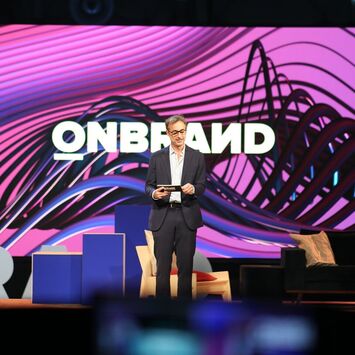News headlines have been bombarding social media timelines on a daily basis about how technology is responsible for almost all of society’s modern problems. Rather than referring to people staring down at their smartphones as smombies, we should remember that they are creating, learning, communicating and sharing.
Meanwhile, we are advised that robots and automation are removing the traditional jobs that have been handed down from generation to generation. We seldom hear about how there are hundreds of thousands of new roles that cannot be filled due a chronic skills shortage.
We are all caught right in the middle of a digital transformation. The old ways of doing things are slowly disappearing and being replaced by new skills and roles that are more fitting to our digital age. Everything we thought we understood about this world has changed, and this understandably makes people nervous.
Uber, has become the world’s largest taxi company without actually owning any vehicles. Facebook, has become the world’s most famous media company without creating any content. The biggest retail Alibaba has no stock, and Airbnb has more rooms than all of the big hotel chains without owning any real estate.
The modern phenomenon of instant gratification and fear of missing out (FoMO) has encouraged the simplification of everything. Any song, book, film or TV show can be enjoyed a few seconds of the idea popping into our heads for a brief moment. These concepts need to be embraced by businesses if they are to survive this transformation.
Organizations that stick to their guns with their in-house IT infrastructure, that can never find the time to maintain or upgrade, are already starting to struggle. Younger, smaller and a more agile companies are enjoying the benefits that come with cloud-based systems that are continuously improving and adding new tools.
These new systems also attract more talented candidates leaving those that resist and fear change in the past. The cautious finance industry is currently facing its very own Uber moment with the rise of Fintech in its backyard. But, how much longer can companies present to be surprised that the business models from the eighties no longer work?
In many ways, it has been big business that caused us to be disconnected from the world around us and its technology that is now bringing us all back together. Most of us do not know where our clothes, food or drink come from as we wander around a supermarket aimlessly.
Now that we are more connected than ever before, and geographical boundaries are being torn down, we are becoming more aware of our social responsibilities. I recently spoke with the team at Naked Wines on my podcast who talked about their inspirational journey and creating positive change along the way.
The traditional wine industry is not one you would expect to be revolutionized by technology. However, Naked Wines realized that people were tired of the soulless supermarket wall of wine experience and created a concept that puts a face to every bottle of wine by connecting consumers directly to winemakers.
Whether it's receiving a handwritten thank you note from staying at an Airbnb property or receiving a bottle of wine from Sicily, there is a clear pattern emerging. We are using technology to create to obtain simplified and personalized meaningful experiences.
We can work on multiple devices from almost any location and catch up with a video conference with a team on the other side of the world. As users, we are embracing all of these digital tools, but legacy businesses are struggling to keep up with the pace of change.
The gap between having an idea and heading into the design, build and distribution have all but disappeared thanks to the wealth of outsourcing options this digital sharing economy has delivered. Meanwhile, giant companies are getting bogged down with their own out-of-date processes which are dramatically changing the business landscape in favor of the underdog.
Contrary to popular opinion, technology is not dividing us but connecting and bringing us closer together. The time for companies to think bigger and embrace the age of opportunity has arrived.









